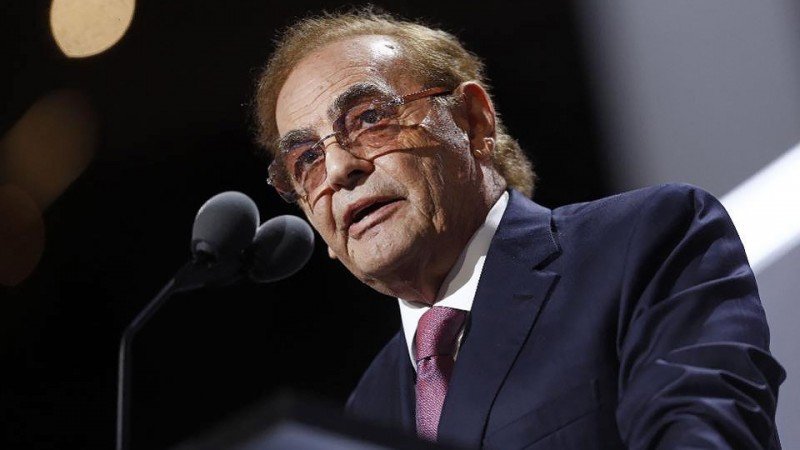Phil Ruffin confirms interest in buying Caesars' Strip properties

Treasure Island owner Phil Ruffin said he would like to buy Caesars Entertainment Corp. Strip properties, which include Caesars Palace, Harrah’s and Paris among others, in case activist investor Carl Icahn push for asset sales. Ruffin said he could come up with USD 1 billion in cash and raise even more in debt for Caesars properties.
“They have some great locations and we would have strong interest,” Ruffin said during an interview with Las Vegas Review-Journal last week. “We don’t have any debt and so we could borrow a lot of money if we found the right deal.”
In February, Icahn recommended the company consider selling itself as one way to boost shareholder value. Icahn owns 18 percent of Caesars, and its stock currently trades at a discount compared to its peers. Caesars stock is down 20 percent over the past year compared with a 10 percent rise for the S&P 500. A spokesperson for Caesars declined to comment on Ruffin’s interest, the same news website reported.
Ruffin said he could borrow an amount equal to about six times a property’s cash flow. He said he is primarily interested in Strip properties that can generate an annual cash flow of USD 200 million to USD 300 million. Strip properties should be able to fetch valuations equivalent to at least 10 times their cash flow, said Barry Jonas, an analyst at SunTrust Robinson Humphrey, implying Ruffin would need at least USD 2 billion to buy a property in his range.
Boyd CEO Keith Smith reiterated on April 25 that his company is interested in having a Strip presence, but avoided commenting on Caesars. Boyd owns casinos in downtown as well as off the Strip on Flamingo and Tropicana. ”If there is an asset on the Strip that becomes available, that’s priced right, that is additive to the portfolio, that can generate a return, then we’ll execute on it,” he said.
Furthermore, Eldorado Resorts CEO Thomas Reeg told Wall Street analysts Thursday that his company would take a “hard look” at targets, but made no mention of the company. In March, several media outlets reported that Eldorado explored a merger with Caesars.
Large operators like Boyd and Eldorado could offer a higher price than Ruffin because of the greater savings they could generate by merging a Caesars property into their company. Nonetheless, the businessman shouldn’t be discounted, analysts said.
Ruffin, a real estate developer with a net worth of about USD 3 billion according to Forbes, purchased Treasure Island from MGM Resorts International in December 2008 for USD 775 million as the casino operator was on the verge of bankruptcy. The businessman also owns 50 percent of Trump International in Las Vegas.
Ruffin said potential buyers of Caesars properties “have to be very careful” in their valuation of future cash flows. Once a property is sold by Caesars, it ceases to be part of its 55-million client database, the casino industry’s largest loyalty program. As a result, property occupancy and cash flows could decline, he said.
Ruffin did not show interest in buying any off-Strip properties, nor in The Cosmopolitan, which the Blackstone investment firm is seeking to sell for as much as USD 4 billion, according to Bloomberg. The businessman said the valuation was too high and that Blackstone may not get more than USD 3 billion for the luxury Strip resort. Ruffin said he did not believe MGM or Caesars would buy The Cosmopolitan either, since Caesars has too much debt while MGM will need to borrow billions of dollars to finance development of a resort in Japan.
Casino Miami upgrade
His most recent gaming acquisition was of Casino Miami in Florida, which he purchased for an undisclosed sum in December. He is investing north of USD 100 million to expand the 21-acre property, located three miles from Miami International Airport. Ruffin said he is considering building an adjacent hotel with 200 to 300 rooms. The airport handled 45 million passengers last year and occupancy near the airport is about 95 percent, he said.
He also said he is in talks to bring Las Vegas-style entertainment to the property, which features a 6,500-capacity indoor arena. Ruffin said he has already signed a deal with William Hill US to build a sportsbook once wagering is legalized in Florida. Brendan Bussmann, a partner at consulting firm Global Market Advisors, said Florida is unlikely to legalize sports betting before the end of 2020.
Ruffin is already taking steps to boost earnings at the property. He has launched a refresh of slots on the Casino Miami gaming floor and added 12 poker tables, which he said is driving not only gaming revenue growth but food and beverage as well. Ruffin said he expects to earn a 20 percent return on his Miami investment.
















































